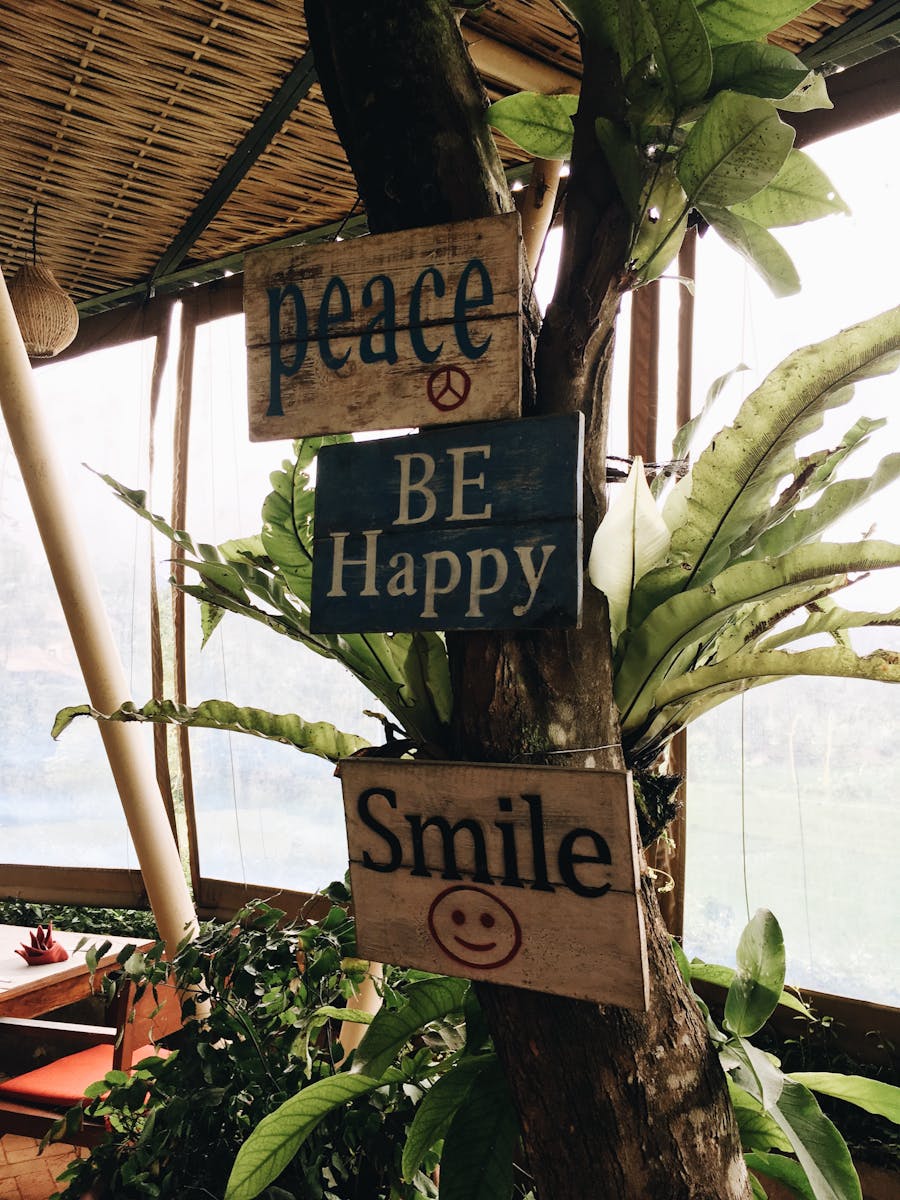Introduction
Welcome, dear reader, to a journey towards inner peace amidst the rigors of social interaction. In a world filled with hustle and bustle, finding tranquility within ourselves can be the beacon that guides us through the complexities of human relationships. The quest for inner peace is not just a luxury but a necessity in navigating the ebbs and flows of social situations with grace.
Importance of Inner Peace in Social Situations
Picture this: you walk into a crowded room buzzing with chatter and laughter. As you navigate through various conversations and personalities, your inner peace acts as your anchor amidst the stormy seas of social dynamics.
It is the calm within you that radiates outward, influencing how you interact with others and handle challenging situations. When we are at peace with ourselves, we exude a sense of confidence and authenticity that resonates with those around us.
Instead of being swept away by external pressures or seeking validation from others, inner peace empowers us to stay true to our values and beliefs while remaining open to diverse perspectives. This harmony within ourselves serves as the foundation upon which we can build healthy relationships and genuine connections in the social tapestry of life.
Understanding Yourself
Self-Awareness and Acceptance
Self-awareness is like having a big ol’ mirror reflecting your thoughts, feelings, and actions back at you. It’s about knowing who you are at your core – your strengths, weaknesses, beliefs, values, and quirks.
Embracing self-awareness means taking the time to explore your inner landscape without judgment. It’s like peeling back the layers of an onion to reveal the essence of your being.
Accepting yourself fully – flaws and all – is a radical act of self-love. When you acknowledge and embrace your true self, you pave the way for genuine growth and fulfillment.
Identifying Triggers and Stressors
Triggers are those sneaky little buttons that people or situations push that set off a chain reaction of emotions within you. They can range from certain words or behaviors to specific environments or memories. Understanding your triggers involves paying attention to what sets off alarm bells in your mind and body.
Once identified, you can begin to develop strategies to manage them effectively. Stressors are like pesky mosquitoes buzzing around your peace of mind – they come in various forms like work pressure, relationship conflicts, or even personal insecurities.
By pinpointing these stressors in your life, you empower yourself to take proactive steps towards minimizing their impact on your well-being.
Understanding yourself is a journey filled with twists and turns as you unravel the intricate tapestry of your inner world. Self-awareness shines a light on the path towards personal growth and authenticity while acceptance acts as a sturdy bridge connecting who you are with who you strive to become.
Identifying triggers and stressors serves as armor against emotional ambushes while navigating the unpredictable terrain of social interactions with greater ease. The key lies in embracing these facets of self-discovery with curiosity and compassion as you embark on the quest for inner peace amidst life’s bustling symphony.
Cultivating Emotional Intelligence
Practicing Empathy and Compassion
Emotional intelligence is like a superpower in social situations. It’s all about being in touch with your own feelings and understanding the emotions of others.
One key aspect of emotional intelligence is empathy – the ability to put yourself in someone else’s shoes and truly understand their perspective. By actively practicing empathy, you can build stronger connections with people and navigate social interactions more skillfully.
Compassion goes hand in hand with empathy. It involves not just understanding someone else’s feelings but also showing kindness and support towards them.
When you approach others with compassion, you create a safe space for open communication and genuine connection. Whether it’s offering a listening ear to a friend in need or showing understanding towards a colleague going through a tough time, cultivating compassion can greatly enhance your social relationships.
Managing Emotions Effectively
Emotions can be powerful forces that influence our thoughts, behaviors, and interactions with others. Managing emotions effectively is crucial for maintaining inner peace and handling social situations gracefully.
It involves being aware of your emotions, acknowledging them without judgment, and choosing how to respond thoughtfully rather than react impulsively. By developing emotional regulation skills, you can navigate challenging conversations with poise and control.
One effective way to manage emotions is through mindfulness practices such as deep breathing exercises or meditation. These techniques help calm the mind, reduce stress levels, and increase self-awareness – all essential components of emotional intelligence.
Additionally, setting healthy boundaries and prioritizing self-care are vital aspects of managing emotions effectively. Learning to say no when necessary and taking time for self-reflection can prevent emotional burnout and enable you to engage authentically in social interactions.
Developing Healthy Boundaries
Saying No Without Guilt
Learning to say no without feeling guilty is a crucial skill in maintaining healthy boundaries. It’s okay to prioritize your own needs and well-being, even if it means turning down requests or invitations.
Remember that saying no doesn’t make you selfish; it simply means you are respecting your limits and setting boundaries. Practice asserting yourself with confidence and clarity when declining something that doesn’t align with your priorities or values.
By valuing your time and energy, you are honoring yourself and fostering self-respect. Setting boundaries by saying no can be empowering and liberating.
Start by acknowledging that you have the right to decline without having to provide elaborate explanations or excuses. Be firm yet polite in your refusal, expressing gratitude for the opportunity while respectfully declining.
Remember that setting boundaries is not about rejecting others but about honoring yourself. It’s important to communicate assertively and stand by your decision without succumbing to guilt or feeling obligated to please everyone at the expense of your own well-being.
Prioritizing Self-Care
Prioritizing self-care is essential for maintaining inner peace and overall well-being. When you take care of yourself, you are better equipped to handle social situations with grace and authenticity.
Self-care looks different for everyone, so it’s important to identify activities that nourish your mind, body, and soul. Whether it’s practicing mindfulness, engaging in physical exercise, indulging in hobbies, or simply taking time for relaxation, make self-care a non-negotiable part of your routine.
Investing time in self-care not only replenishes your energy but also reinforces your sense of worthiness and self-respect. Make a conscious effort to schedule regular self-care activities into your daily or weekly routine.
This could be as simple as taking a leisurely walk in nature, enjoying a soothing bath, reading a book that brings you joy, or spending quality time with loved ones. Remember that prioritizing self-care is not selfish; it is an act of self-love that enables you to show up as the best version of yourself in social interactions.
Enhancing Communication Skills
Active Listening Techniques
Communication is a two-way street, and active listening is a crucial component of effective communication. When engaging in conversations, it’s essential to not just hear the words being said but truly listen and understand the message behind them.
Active listening involves giving your full attention to the speaker, maintaining eye contact, nodding to show you’re engaged, and paraphrasing or summarizing what they’ve said to ensure you’ve grasped their message accurately. By practicing active listening, you demonstrate respect for the speaker and create a deeper connection in your social interactions.
Moreover, active listening also involves showing empathy and understanding towards the speaker’s feelings and emotions. It means being present in the moment without thinking about how you will respond while they are speaking.
By actively engaging in conversations with this empathetic approach, you not only strengthen your relationships but also gain valuable insights into others’ perspectives and experiences. Remember, effective communication is not just about talking; it’s equally important to listen attentively.
Assertiveness in Expressing Needs
Assertiveness is a valuable communication skill that allows you to express your thoughts, feelings, and needs confidently without being aggressive or passive. It involves standing up for yourself respectfully while considering others’ viewpoints as well.
When asserting your needs in social situations, it’s crucial to use “I” statements to express how you feel rather than blaming or accusing others. By owning your emotions and expressing them assertively, you convey honesty and authenticity in your interactions.
Furthermore, assertiveness empowers you to set boundaries effectively and communicate your limits clearly. It helps prevent misunderstandings or conflicts by ensuring that others understand where you stand on certain issues or behaviors.
Assertive communication also fosters mutual respect within relationships as it encourages open dialogue and honest expression of thoughts and feelings. Remember that being assertive doesn’t mean always getting what you want; instead, it signifies standing up for yourself while respecting others’ perspectives as well.
Navigating Difficult Conversations
Conflict Resolution Strategies
When faced with a conflict, it’s crucial to approach the situation with a calm and rational mindset. One effective strategy is to actively listen to the other person’s perspective before expressing your own.
This demonstrates respect and can help in finding common ground. Avoiding blame and focusing on finding solutions rather than escalating the conflict is key.
Remember, it’s okay to disagree but aim for a resolution that respects both parties’ feelings and opinions. Another helpful strategy is using “I” statements instead of “you” statements when addressing the issue.
For example, saying “I feel upset when this happens” is less confrontational than saying “You always make me angry.” This approach encourages open communication and reduces defensiveness. Additionally, seeking compromises that are mutually beneficial can lead to a more harmonious resolution.
Handling Criticism Constructively
Criticism can be challenging to receive, but learning how to handle it constructively is essential for personal growth. When faced with criticism, try not to take it personally and instead see it as an opportunity for self-improvement. Take a moment to reflect on the feedback provided and consider if there are valid points worth addressing.
It’s important to respond to criticism gracefully by thanking the person for their input, even if you may not fully agree with their perspective. Avoid becoming defensive or dismissive as this can escalate tensions further.
Instead, ask clarifying questions if needed and express your willingness to work on any identified areas of improvement. Remember that constructive criticism can offer valuable insights that can help you evolve and become better equipped in handling future challenges.
Mindfulness Practices for Inner Peace
Practicing Meditation and Deep Breathing Exercises
Welcome to the serene realm of mindfulness practices, where the chaos of the outside world fades away, and a sense of inner calm envelops you like a warm embrace. Meditation, the art of focusing your mind and cultivating awareness, is a powerful tool in achieving inner peace. Find a quiet corner, sit comfortably, close your eyes, and let your breath guide you into a state of tranquility.
As you gently observe your thoughts drifting by like clouds in the sky, allow yourself to detach from worries and stresses that may have weighed you down. Deep breathing exercises act as anchors in the sea of our emotions, helping us ride out turbulent waves with grace and poise.
Inhale deeply through your nose, feeling your abdomen expand like a balloon filling with air. Hold for a brief moment before exhaling slowly through your mouth, releasing tension and negativity with each breath.
Repeat this practice several times, syncing your breath with gentle movements that soothe both body and mind. Feel the rhythm of life flowing through you as you connect with your inner self on a profound level.
Creating a Gratitude Journal for Positive Reflections
Behold the transformative power of gratitude—a force so potent it can shift our perspective from scarcity to abundance in an instant. Keeping a gratitude journal is like capturing rays of sunshine in a bottle; each entry illuminates moments of joy and blessings that may have gone unnoticed amidst life’s hustle and bustle.
Take pen to paper or fingertips to keyboard at the end of each day, reflecting on experiences that filled your heart with warmth or lessons learned from challenges overcome. The act of writing down what we are grateful for not only nurtures positivity but also cultivates an attitude of appreciation towards ourselves and others.
It serves as a gentle reminder that even on our darkest days, there are sparks of light waiting to be acknowledged and cherished. As you flip through the pages of your gratitude journal over time, witness how these moments weave together a tapestry of resilience and contentment that fortifies your spirit against any storms that may come your way.
Finding Support Systems
Building Your Tribe: Surround Yourself with Positive People
Finding a support system is vital when striving for inner peace. Surround yourself with individuals who lift you up, understand your struggles, and provide unwavering support. Whether it’s close friends, family members, or a supportive community, having a tribe that you can lean on during challenging times can make a significant difference in your overall well-being.
Joining Support Groups: Connecting with Like-minded Individuals
Seek out support groups or online communities where you can connect with like-minded individuals facing similar challenges. Sharing experiences and insights with others who understand what you’re going through can be incredibly comforting. These groups provide a safe space to express yourself openly and receive valuable advice and encouragement from those who truly empathize with your journey.
Seeking Professional Help When Needed
Therapy Sessions: Talking to a Professional Therapist
There’s no shame in seeking help from a professional therapist or counselor when dealing with internal struggles or social anxieties. Therapy sessions offer a confidential environment where you can explore your thoughts and emotions, gain valuable insights, and learn coping strategies to navigate social situations more effectively. A trained therapist can provide guidance tailored to your specific needs and empower you to overcome challenges with grace.
Mental Health Resources: Utilizing Available Resources
If you’re struggling to find peace within yourself despite your best efforts, don’t hesitate to reach out for professional mental health resources. Whether it’s contacting a helpline, accessing online therapy platforms, or scheduling an appointment with a psychiatrist, there are various resources available to support your mental well-being. Taking proactive steps to prioritize your mental health is an act of self-compassion that demonstrates strength and resilience.
Conclusion
In the journey towards inner peace and handling social situations gracefully, remember that progress is not always linear – it’s okay to have ups and downs along the way. Embrace the process of self-discovery and growth as an opportunity for personal transformation.
By building strong support systems and seeking help when needed, you are taking proactive steps towards nurturing your inner peace. Trust in your ability to navigate life’s challenges with resilience and optimism – every step forward brings you closer to a place of harmony within yourself.






